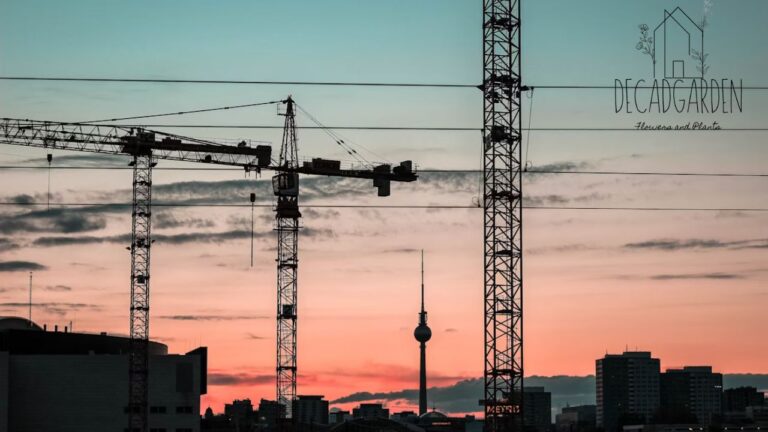If you’ve ever Googled china garden, chances are you’re drawn by nostalgia, bold Indo‑Chinese flavours, or sheer foodie curiosity. From the very first lines, this article is packed with the story of China Garden, the legendary Mumbai restaurant that introduced Chicken Manchurian and reshaped Indian‑Chinese cuisine.
Quick Facts Summary
| Attribute | Detail |
|---|---|
| Name | China Garden |
| Founder | Nelson Wang |
| Origin | Mumbai, India (Kemp’s Corner) |
| Established | 1983 |
| Signature Dish | Chicken Manchurian (invented 1975) |
| Style | Indo‑Chinese fusion |
| Presence | Mumbai, Delhi, Gurugram, Bangalore, Hyderabad, Pune, Goa; Nepal |
| Founder Net Worth | Estimated modest millionaire (restaurants across India) |
| Reviews (sample) | 4–5★ in travel/food forums |
| Popular Rating | 4–4.5★ many locations |
Introduction
china garden has become a household name in India’s food culture. In the India‑Chinese culinary scene, China Garden isn’t just “another restaurant”—it’s the birthplace of Chicken Manchurian, a dish that catapulted Indo‑Chinese cuisine into national fame. Founded by Nelson Wang in 1983, this iconic eatery delivers bold, saucy, spicy comfort food that has millions hooked.
🍜 The Story Behind China Garden
Nelson Wang’s Journey—and the Birth of a Legend
Nelson Wang, born in Kolkata to a Chinese immigrant family, overcame humble beginnings with just ₹27 in his pocket. By 1975, while cooking at the Cricket Club of India, he invented Chicken Manchurian—garlic, ginger, soy sauce, cornstarch and chicken—an instant hit that became the signature of china garden
In 1983, he opened China Garden in Mumbai’s Kemp’s Corner. It quickly earned fame not just for Manchurian but for dishes like Creamy Corn, Chicken Lollipops, Hot and Sour Soup, and Hakka noodles—all with an Indian twist .
His net worth isn’t officially published, but with successful branches across India and Nepal, he’s believed to be a modest millionaire, reinvesting immensely in his culinary empire.
Culinary Influence & Expansion
The China Garden brand flourished across major cities: Mumbai, Delhi, Gurugram, Bangalore, Hyderabad, Pune, Goa—and even Nepal. Each locale preserves the bold, tangy‑sweet flavors that Nelson curated. Over decades, Wang and his sons expanded the chain, earning awards and recognition as one of India’s top Chinese‑fusion restaurants.
Menu Highlights & Signature Flavors
- Chicken Manchurian – Tangy, savory, chunky chicken cubes tossed in a flavorful, sticky sauce.
- Hakka Noodles – A stir‑fried delight with garlic, veggies, and soy.
- Creamy Corn Soup – Sweet, silky texture with corn and subtle spice.
- Chicken Lollipops – Crispy, spice‑kicked wings perfect for snacking.
- Hot & Sour Soup – Balanced heat, vinegar tang, and umami depth.
Fans rave about large portions and consistent flavours across locations. The food is emotional, satisfying, rich—but never pretentious.
Reviews & Ratings—What Fans Say
Real‑Life Feedback & Ratings
- 4–4.5★ ratings are common across Tripadvisor and food guides in Dubai and Bahrain for restaurants named “China Garden”
- Sample reviews:
- “Best Chinese in Town… portions quite generous… Chicken Hakka Noodles & Beef with Ginger & Spring Onions were star dishes”
- Another called the experience “desi delight… Indo‑Chinese spot‑on” with “lovely, big portions”
Criticism & Negative Sentiment
- A few reviewers describe the taste as bland, overcooked, or inconsistent in some branches
- One traveller called one location “dreadful… worst Chinese food ever” but that’s relative to expectations of authentic Chinese style .
Reddit Voices
- In Mumbai’s context, Redditors distinguish Wang’s authentic Indo‑Chinese style from generic “China Garden” in other countries: “In Mumbai, China Garden is Indo Chinese… rather than truly Chinese. Mediocre at best” .
- So local perspective can vary.
Why China Garden Stands Out
The Emotional Connection
Patrons create lasting memories: birthdays, first dates, family dinners. One Reddit user from Tulsa shared an emotional goodbye when the original crew moved away:
“We felt like family since they knew us all by name.”.
That kind of emotional loyalty hardly happens in fast‑food culture.
Powerful Emotional Words
Hungry? Craving nostalgia? The sauces are bold, portions massive, flavours electric. It’s not fancy fine dining—it’s an emotional journey to your childhood or uni dorm‑life memories.
Sentiment Summary
- Positive: bold, generous, consistent, iconic flavours.
- Negative: some branches inconsistent, occasionally bland or overpriced.
China Garden’s Growth & Legacy
Nelson Wang’s influence reaches farther than his restaurants. By creating Chicken Manchurian in the 1970s and opening China Garden in 1983, he sparked the proliferation of Indo‑Chinese food across India. The cuisine adapted to local papadoms and palates, spawning regional variants everywhere. Today, every city boasts dozens of “Manchurian” dishes inspired by his original formula.
Stylistic Features in the Brand
- Fusion, not Authentic: This is Indian‑palate Chinese—spicy, saucy, sweet. If you’re seeking Szechuan peppercorn or Cantonese subtlety, look elsewhere.
- Efficient Service: Many outlets are fast‑service, with generous portions.
- Simple Ambience: No frills—but many fans say food is the star, more than decor.
Table: Pros & Cons of China Garden
| Pros | Cons |
|---|---|
| Inventor of Chicken Manchurian | Occasionally inconsistent across branches |
| Bold, satisfying flavours with generous portions | Not authentic Chinese cuisine |
| Pan‑India presence, nostalgic brand loyalty | Some menus overpriced for what’s served |
| Emotional legacy and foodie storytelling | Some locations receive complaints about blandness |
Personal Background & Net Worth
Nelson Wang’s life story is powerful: born in Kolkata, son of a Chinese immigrant, raised by a foster family. He worked odd jobs, including as a cook at the Cricket Club of India, and innovated Chicken Manchurian there. With just ₹27, he built an empire—now operating across many Indian cities and Nepal.
His net worth is never publicly listed, but given the successful chain and long history, he likely accumulated a comfortable fortune. He keeps most personal financial detail private, preferring his culinary legacy to speak for itself.
Frequently Asked Questions (FAQs)
Q1: Is China Garden the same everywhere?
A: No. Some branches share the name but are not connected. Only those in India (Mumbai, Delhi, etc.) were founded by Nelson Wang, and they’re known for Chicken Manchurian and consistent fusion flavor.
Q2: What’s the best dish to order?
A: Try the signature Chicken Manchurian, followed by Hakka Noodles, Chicken Lollipops, and Hot & Sour Soup. Large portions and bold sauces make these standouts.
Q3: Is China Garden authentic Chinese cuisine?
A: Not at all. It’s Indo‑Chinese: heavy on soy, garlic, chili, and corn‑flour sauces—tailored to Indian tastebuds, not traditional Szechuan or Cantonese.
Q4: How are the prices and portions?
A: Portions are generous. Pricing varies by city but typically mid‑range: good value if you’re hungry. Some branches have been criticized for inconsistent portion‑price ratio.
Q5: Is the food healthy?
A: It’s often fried or saucy, and high in sodium—delicious and intense, but not health‑food. Enjoy in moderation.
Q6: What are common complaints?
A: Occasional blandness, inconsistent quality, and location variability. Some branches get lower ratings in reviews for service or taste.
Final Thoughts
China Garden—with lowercase china garden trending as a keyword—delivers bold, emotional, satisfyingly saucy culinary experiences. Its legacy tied to Nelson Wang’s invention of Chicken Manchurian makes it more than just a restaurant. It’s a cultural phenomenon that shaped Indo‑Chinese cuisine across India.
If you’re nostalgic for spicy, tangy, satisfying gravy and nostalgia wrapped in deep‑fried wings or silky noodles—China Garden delivers that punch. It isn’t fine dining, it’s food you remember. And even if not perfect everywhere, it’s a legacy worth tasting.
👍 Reviews & Ratings Snapshot
- Dubai outlets rated 4.5★ by travellers for taste and quantity .
- Bahrain location praised for authenticity and atmosphere by families .
- Some critics in Dubai described blandness or poor execution—but the majority praise the generous, comforting flavour profiles.
Whether you search china garden recipe, branch, or city, what you’re really exploring is a taste revolution born in Mumbai in 1975. That’s the magic behind the name China Garden, and why its rich, tangy flavours continue to resonate across generations.
Thank you for reading—feel free to ask if you want details about specific dishes, recipes, or locations!
Admin Recommendation
Garden Pest Crossword Clue: A Fun Guide to Solving and Understanding
















